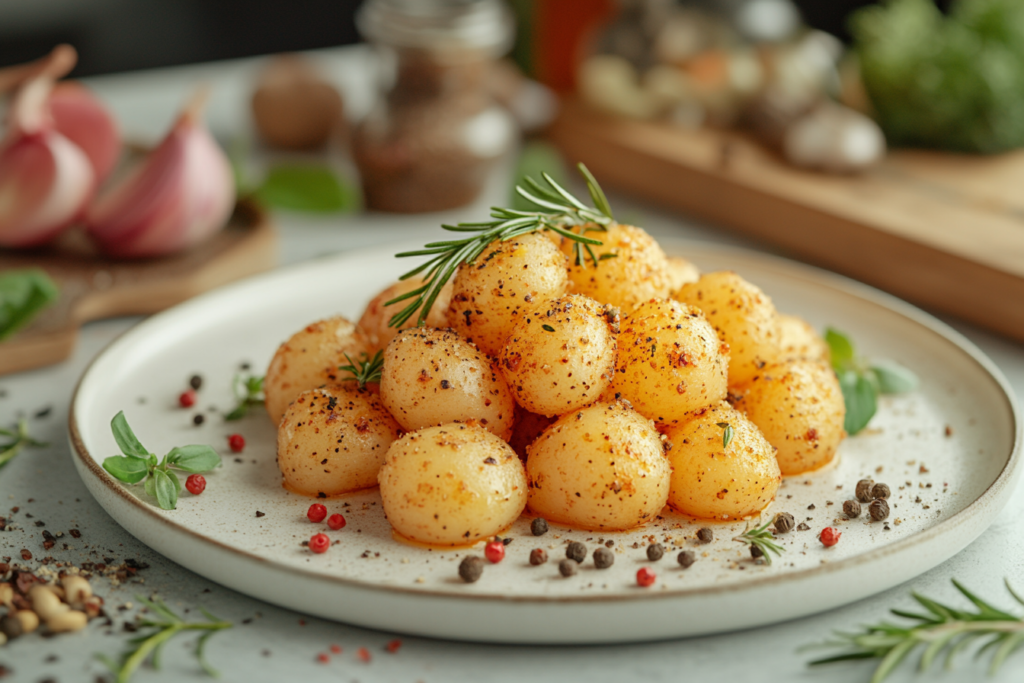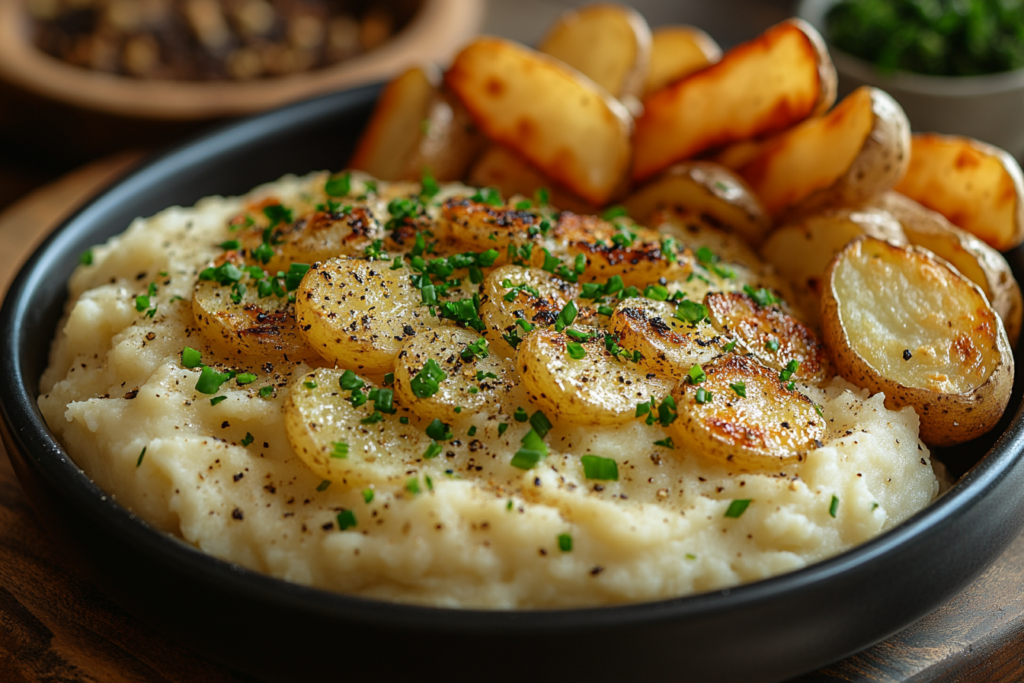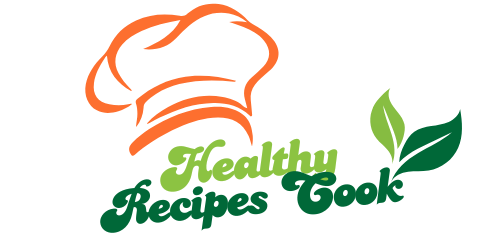Potatoes are a dietary staple worldwide, beloved for their versatility and affordability. Among the various types of potatoes, the russet potato stands out for its distinctive flavor, fluffy texture, and nutrient-rich profile. But how many calories in 100g of cooked russet potato, and how does this fit into your dietary needs?
Understanding the calorie count of cooked russet potatoes is essential for those aiming to manage their weight, fuel their workouts, or simply eat a balanced diet. This article delves into the calorie content of 100g of cooked russet potatoes, examines the impact of cooking methods, and explores their nutritional benefits, making it easier for you to make informed choices.
Table of Contents
Potatoes have been vilified as carb-heavy, yet they remain one of the most nutrient-dense and energy-efficient foods. Whether boiled, baked, or fried, russet potatoes offer much more than calories—they are an excellent source of essential vitamins and minerals. In this guide, we’ll focus on the cooked form of russet potatoes and provide a comprehensive breakdown of their calorie content, nutritional value, and role in a healthy diet.
Nutritional Profile of Russet Potatoes
Russet potatoes are a popular variety, often used in baking, mashing, and frying due to their starchy texture and high fiber content. These potatoes provide more than just calories—they’re a source of essential nutrients like vitamins, minerals, and antioxidants. But when it comes to calories, how does a 100g serving of cooked russet potato stack up? Let’s break it down.
For a comprehensive understanding of how potatoes fit into a healthy diet, you might explore the calories in 1 russet potato, which offers further insights into portion sizes.
Macronutrients in Cooked Russet Potatoes
When considering the nutritional profile of cooked russet potatoes, we focus on the macronutrients: carbohydrates, proteins, and fats. These macronutrients are the primary contributors to the calorie content.
For similar nutrient-packed dishes, check out these healthy dinner habits for a balanced life.
Calories and Energy Content
In a 100g serving of cooked russet potato, you can expect the following macronutrient breakdown:
- Calories: 87 kcal
- Carbohydrates: 20.1 g
- Proteins: 2.0 g
- Fats: 0.1 g
This makes russet potatoes a low-calorie food with a high carbohydrate content, predominantly in the form of starch, which provides energy. The fat content is negligible, making it a suitable option for people monitoring their fat intake.
Micronutrients and Health Benefits
While calories are often the first thing people focus on when considering their food intake, russet potatoes also offer a wealth of vitamins and minerals. These nutrients play vital roles in maintaining overall health, from supporting the immune system to maintaining healthy digestion.
Key Vitamins and Minerals
- Vitamin C: A 100g serving of cooked russet potato contains about 13 mg of vitamin C. This vitamin is essential for immune function, skin health, and iron absorption.
- Potassium: Potatoes are an excellent source of potassium, with a 100g portion providing around 429 mg of this important mineral. Potassium helps regulate fluid balance, muscle function, and blood pressure.
- Vitamin B6: Potatoes contain roughly 0.2 mg of vitamin B6 per 100g, which plays a critical role in brain health, metabolism, and nerve function.
- Iron: Although not a rich source, russet potatoes provide a small amount of iron, contributing to red blood cell production.
Overall, russet potatoes offer a solid array of essential nutrients, making them more than just a simple carbohydrate source. Their vitamin and mineral content supports a range of bodily functions, helping to improve overall health and well-being.
How Cooking Methods Impact Calorie Count

The calorie content of russet potatoes can change depending on how they are cooked. While the raw potato provides a certain number of calories, the method of preparation can either increase or decrease the overall calorie count. Here’s how various cooking methods affect the calories in a 100g serving of russet potato.
If you’re curious about pairing ideas, see this guide on what goes with hashbrown casserole for inspiration.
Boiled vs. Baked Russet Potatoes
Boiling and baking are two of the most common methods for preparing russet potatoes, and they both affect the calorie content differently.
- Boiled Russet Potatoes: When russet potatoes are boiled, they retain their moisture and do not absorb much additional fat or oil. A 100g serving of boiled russet potatoes typically contains around 87 kcal. This method preserves the natural calorie count while allowing the potato to remain soft and flavorful. It is also one of the healthiest options because no extra fats are added during the cooking process.
- Baked Russet Potatoes: Baking russet potatoes tends to concentrate their flavors and slightly alter their texture. A medium-sized baked russet potato (approximately 180-200g) contains roughly 160-180 kcal. Baking without any oil or butter can keep the calorie count similar to boiling, but the skin adds fiber and additional nutrients, which can be beneficial for digestion and overall health.
Fried and Mashed Potatoes
Frying and mashing russet potatoes can lead to significant changes in their calorie content due to the addition of oils, butter, or cream.
- Fried Russet Potatoes: Frying russet potatoes, whether in the form of French fries or potato chips, significantly increases the calorie count. A 100g serving of fried russet potatoes can contain anywhere from 200-300 kcal, depending on the oil used and the method of preparation. The oil absorbed during frying contributes to a higher fat content, making fried potatoes one of the most calorie-dense preparations.
- Mashed Russet Potatoes: Mashed potatoes are often made with butter, cream, or milk, which adds both calories and fat. A 100g serving of mashed russet potatoes can contain 120-150 kcal, depending on the amount of fat and cream used. If you’re making mashed potatoes at home, you can control the calorie count by limiting or skipping high-calorie additions like butter and cream.
Additions and Toppings
In addition to the cooking method, the toppings you choose for your russet potatoes can have a significant impact on the calorie count. For example, adding butter, cheese, sour cream, or bacon to a baked or mashed russet potato can quickly add up the calories.
- Butter and Sour Cream: A tablespoon of butter adds approximately 100 kcal, while a tablespoon of sour cream adds about 30-40 kcal. Adding these toppings to a baked or mashed russet potato can easily double the calorie count.
- Cheese: A sprinkle of shredded cheese can add 70-100 kcal per ounce, depending on the type of cheese used. While this adds flavor, it also significantly increases the calorie content of the potato.
- Bacon and Other Toppings: If you enjoy adding bacon bits or other high-calorie toppings to your potatoes, the calorie count can rise further. Bacon adds around 40-50 kcal per slice, and when added to a large baked potato, it can easily push the total calorie count to 300 kcal or more.
To keep the calorie count in check, consider healthier toppings like fresh herbs, salsa, or a small amount of low-fat cheese.
Russet Potatoes in a Balanced Diet
Russet potatoes are often labeled as “fattening” or “high in carbs,” but they can actually be part of a healthy, balanced diet when consumed in moderation and prepared properly. They are an excellent source of complex carbohydrates, providing sustained energy for your body. Let’s dive into how russet potatoes can fit into different aspects of a balanced diet, whether you’re managing your weight, fueling a workout, or just looking for a nutritious side dish.
Including russet potatoes in your meals can support weight management and physical activity. Their fiber content promotes satiety, while their complex carbohydrates provide sustained energy. For more ways to enjoy potatoes while staying healthy, explore healthy salad toppings that can complement baked or boiled potatoes.
Role in Weight Management
One of the main concerns when it comes to potatoes is their carbohydrate content. Carbs can contribute to weight gain if consumed in excess, but when consumed in appropriate portions, russet potatoes can be a filling and satisfying part of your diet. The key lies in portion control and how you prepare them.
- Satiety: A boiled or baked russet potato can help promote feelings of fullness, thanks to its fiber content. The 2g of fiber per 100g serving helps slow down digestion and stabilize blood sugar levels, which in turn can reduce overall calorie intake by curbing unnecessary snacking.
- Low-Calorie Option: Despite their carbohydrate content, boiled or baked russet potatoes are low in calories compared to many other starchy side dishes, such as pasta or rice. Including them in your diet can provide a satisfying, low-calorie option that still offers nutritional value.
- Glycemic Index Considerations: While potatoes have a higher glycemic index (GI), which can cause a quicker spike in blood sugar levels, pairing them with protein or healthy fats can slow this process. For instance, a boiled russet potato paired with grilled chicken or avocado can help balance the overall glycemic load of the meal, making it more suitable for weight management.

Supporting Physical Activity and Energy Needs
For those who lead active lifestyles or have higher energy needs, russet potatoes can be an excellent food to include in your diet. Their high carbohydrate content provides a quick and easily accessible source of energy, ideal for athletes and individuals who perform intense physical activities.
- Pre-Workout Fuel: The starchy carbohydrates in russet potatoes are an excellent pre-workout option. They provide long-lasting energy without the quick crash that can come from simple sugars. Consuming a small baked or boiled russet potato an hour or two before exercise can help fuel endurance and performance.
- Post-Workout Recovery: After intense exercise, the body needs to replenish its glycogen stores. Russet potatoes, with their high carb content, are an excellent food choice for recovery. Pairing them with a lean protein source (like chicken or fish) will help repair muscle tissues and rehydrate the body.
- Energy-Rich Meals: For individuals with high energy demands, such as those involved in manual labor or intense athletic training, russet potatoes are an energy-dense food that can support daily caloric requirements. Incorporating them into larger meals ensures that you’re meeting your energy needs in a nutritious way.
Russet potatoes provide a reliable source of energy, making them ideal for those who require extra calories for their daily activities. However, portion control remains crucial to avoid excess calorie intake.
Comparison with Other Potato Varieties
While russet potatoes are one of the most commonly consumed varieties, they are not the only type of potato available. Different types of potatoes offer varying nutritional profiles, including calorie content, and may be more suitable for certain diets or cooking methods. Let’s compare russet potatoes with other popular potato varieties, such as Yukon Gold and sweet potatoes, to understand how they measure up in terms of calories and nutrition.
Russet vs. Yukon Gold Potatoes
Yukon Gold potatoes are another popular variety known for their smooth texture and slightly buttery flavor. They are commonly used for mashing, baking, or roasting. But how do they compare to russet potatoes in terms of calories?
- Calories in Yukon Gold Potatoes: A 100g serving of Yukon Gold potatoes contains approximately 77 kcal, slightly fewer calories than russet potatoes, which have around 87 kcal per 100g when cooked. The difference in calories is minor but worth noting, particularly for those closely monitoring their intake.
- Carbohydrates and Fiber: Yukon Gold potatoes contain about 17.5g of carbohydrates per 100g serving, slightly less than russet potatoes at 20.1g per 100g. They also provide about 2.1g of fiber per 100g, which is slightly higher than russets, making them a good choice for digestion and satiety.
- Nutritional Content: Both types of potatoes provide similar amounts of vitamin C, potassium, and B vitamins, with Yukon Gold potatoes offering a richer, buttery texture when compared to russet potatoes. This variety is often favored for its slightly creamy consistency, which makes it ideal for mashed potatoes.
In terms of calories, Yukon Gold potatoes are a slightly lower-calorie option compared to russets, but the difference is marginal. Both types are excellent sources of carbohydrates, fiber, and vitamins, making either choice a nutritious addition to your diet.
Russet vs. Sweet Potatoes
Sweet potatoes are another popular starchy vegetable, known for their bright orange flesh and sweeter flavor. Often considered a healthier alternative to regular potatoes, sweet potatoes are rich in beta-carotene, a powerful antioxidant. However, how do they compare with russet potatoes in terms of calories and overall nutrition?
- Calories in Sweet Potatoes: A 100g serving of cooked sweet potato contains approximately 90 kcal, which is just slightly more than russet potatoes (87 kcal per 100g). While sweet potatoes have a comparable calorie count, they are typically more nutrient-dense in terms of vitamins and minerals.
- Carbohydrates and Fiber: Sweet potatoes have around 20.7g of carbohydrates per 100g, similar to russet potatoes (20.1g), but they tend to have slightly more fiber, with about 3.3g of fiber per 100g serving. The higher fiber content in sweet potatoes makes them a great choice for digestive health and regulating blood sugar levels.
- Nutritional Content: One of the standout benefits of sweet potatoes is their high content of vitamin A (as beta-carotene). A 100g serving of sweet potato provides more than 100% of your daily recommended intake of vitamin A, which supports immune function, vision, and skin health. Russet potatoes, on the other hand, do not contain significant amounts of vitamin A but offer more potassium (429 mg in russets vs. 337 mg in sweet potatoes).
When comparing the two, sweet potatoes are slightly higher in calories and carbohydrates but offer more fiber, vitamins, and antioxidants. Russet potatoes, while less nutrient-dense in terms of vitamins, are a great source of potassium and a lower-calorie option. Both types of potatoes have their benefits depending on dietary goals.
Frequently Asked Questions (FAQ)
As we’ve explored the calorie content and nutritional profile of russet potatoes, it’s natural to have additional questions about their health implications and how to incorporate them into your diet. Here are some common questions people have regarding russet potatoes and their calorie content.
How many calories are in a raw russet potato?
A raw russet potato contains approximately 77 calories per 100 grams. The calorie content of raw potatoes is lower than that of cooked potatoes, as the cooking process (especially methods like baking or frying) causes the potatoes to lose water and become more concentrated, increasing their calorie density.
Are russet potatoes good for weight loss?
Russet potatoes can be part of a weight loss diet, but it depends on how they’re prepared and consumed. If you bake or boil russet potatoes without adding high-calorie toppings like butter or cheese, they can be a satisfying, low-calorie food that provides essential nutrients. Their high fiber content also helps with satiety, making them a filling choice in a calorie-controlled diet.
What is the difference between russet potatoes and red potatoes in terms of calories?
While russet potatoes are slightly higher in calories than red potatoes, the difference is minimal. A 100g serving of red potatoes contains about 70-75 calories, while a 100g serving of russet potatoes provides around 87 calories. The primary difference between these varieties lies in texture, with russet potatoes being fluffier and red potatoes being waxier, which affects their use in cooking rather than their calorie count.
Are russet potatoes high in carbs?
Yes, russet potatoes are relatively high in carbohydrates. A 100g serving contains about 20g of carbs, most of which are starches. Carbohydrates provide energy, and while they are an important part of a balanced diet, portion control is key to avoiding excessive calorie intake, especially for individuals managing blood sugar or weight.
Can russet potatoes be part of a keto diet?
Russet potatoes are not typically suitable for a keto diet because they are high in carbohydrates, which can interfere with the low-carb, high-fat principles of the keto eating plan. However, small amounts of potatoes can sometimes be included depending on your carb limits for the day. Alternatives such as cauliflower “potatoes” or other low-carb vegetables are commonly recommended in keto diets.
How can I reduce the calories in russet potatoes?
There are several ways to reduce the calorie content of russet potatoes:
Choose healthier cooking methods: Boiling, steaming, or baking without oil or butter will keep the calorie count low.
Avoid high-calorie toppings: Skip the butter, sour cream, cheese, and bacon. Instead, opt for herbs, spices, or a small amount of olive oil for flavor.
Portion control: Stick to a reasonable portion size. A medium russet potato typically weighs around 150g, so consuming smaller portions will help you manage calorie intake.
By following these tips, you can enjoy russet potatoes in a more calorie-conscious way.
Conclusion
Russet potatoes are a nutrient-rich, versatile food that can fit into a healthy diet when consumed mindfully. A 100g serving of cooked russet potatoes contains approximately 87 calories, making it a relatively low-calorie food, especially when prepared using healthier cooking methods like baking or boiling. While they are high in carbohydrates, russet potatoes are also rich in fiber, vitamins, and minerals, such as vitamin C, potassium, and vitamin B6, contributing to their health benefits.
Incorporating russet potatoes into a balanced diet can support energy needs, digestion, and overall well-being. However, it is important to consider the cooking method and portion size to ensure they remain a healthy, satisfying choice. Whether you’re trying to manage weight, fuel your workouts, or simply enjoy a tasty meal, russet potatoes can be a great addition to your plate when prepared in moderation and with thoughtful choices.
For more details on the benefits of russet potatoes and other healthy recipes, visit the Healthy Recipes Cook homepage.
Calories in 100g of Cooked Russet Potato
Equipment
- Pot
Ingredients
Potatoes
- 100 g Cooked Russet Potato Boiled without skin
Instructions
- Wash and peel the russet potato.
- Bring a pot of water to a boil and add the potato.
- Boil for 15-20 minutes until fork-tender.
- Drain and serve plain or with a light seasoning.


